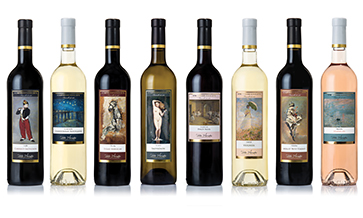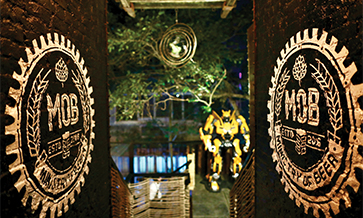Consumers around the world can now have greater confidence in the quality of their whiskey following the development of new guidelines by the British Standards Institute (BSI) setting out the best practice for how to produce it and ensuring a trusted supply chain for one of the most popular alcoholic beverages around the world and India.
The new standard by BSI, the UK’s national standards body, will support distillers to offer a consistent whiskey-drinking experience by focusing on the quality of the product beyond the minimum regulatory requirements.
Whiskey is one of the most popular alcoholic beverages in India, which replaced France as the largest Scotch whisky market by volume (242 million cases) in 2022.
According to ISWR, the leading supplier of data and market intelligence on the global alcoholic drinks markets, whiskey dominates nearly two-thirds of India's US$ 53-billion alcohol beverages sales, making a strong case for adopting standards that make the process of making whiskey more efficient and reliable.
The BSI standard for whiskey has been developed by experts from across the Scottish, Welsh, English and Irish whiskey industries and becomes the world’s first standard for whiskey.
Technical matters
With the industry growing worldwide and new distillers appearing all the time, the standard published by BSI builds on the industry experts’ deep knowledge of whiskey production to set out how producers can deliver the specific colour, aroma and taste derived from its raw materials and production process.
The voluntary standard (BS 8636) provides a specification of the production process for the main categories of whiskey traded and consumed globally. It is aimed at distillers and can help both established brands and new market entrants demonstrate quality and authenticity in their production processes and supply chain. It can also be used by producers globally seeking to create a high-quality spirit that meets consumers’ expectations.
Theuns Kotze, Managing Director of BSI for India, Middle East, Turkey and Africa, said: “BSI’s new BS 8636 standard can catalyse growth by helping everyone in the whiskey value chain in India. By adopting these standards, while producers would be able to ensure the quality of their products, consumers would benefit by way of quality, authenticity and overall consistency where they can be confident of receiving a product that aligns with its price point and quality.”
It should also encourage the raw materials suppliers to ensure the quality of input. The guidance, the first of its kind, details the methods of analysis which should be used to establish authenticity and consistency with that production process, the expected organoleptic characteristics, the typical ranges for analytes of interest and other technical matters.
The standard sets out details including the desired colour of the whisky, which should be caramel, ranging from pale yellow/gold to deep amber/mahogany. It advises that whiskey must be matured for at least 3 years in wooden casks and cannot be sweetened or contain any additives.
‘Whiskey nosing’
It also sets the minimum alcohol strength by volume as 40% and says every distillation should be carried out at less than 94.8% volume “so that the distillate has an aroma and taste derived from the raw materials used”.
The standard notes that water and plain caramel are the only two compounds that can be added to matured whisky. It also describes the process of “whiskrey nosing”, but it stops short of prescribing a glass shape for this, advising instead that, “the most popular glasses for this are tulip-shaped, as they allow aromas to collect”.
There are other important details related to packaging, such as the advice that although whiskey is not produced from animal products, the use of animal products in the production of other alcohol beverages stored in the cask earlier should be considered when it comes to product labelling.
The new standard will be managed by a dedicated technical committee, which may revise and update the standard as required based on market feedback. BSI will discuss with the committee plans for the future, including the possibility of using the standard as a base document for an international (ISO) standard.












